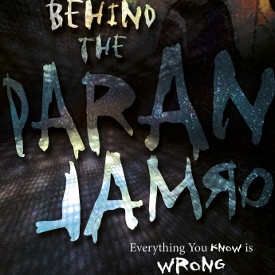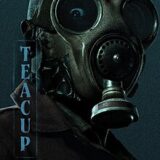 Tim Lebbon’s 2012 novel The Heretic Land is something of an endangered species in modern publishing; a self-contained, complete unto itself secondary world fantasy novel. The whole is told in a substantial, not excessive 448 pages. Also included, at least in the UK edition, is an interesting 6 page interview with author Tim Lebbon.
Tim Lebbon’s 2012 novel The Heretic Land is something of an endangered species in modern publishing; a self-contained, complete unto itself secondary world fantasy novel. The whole is told in a substantial, not excessive 448 pages. Also included, at least in the UK edition, is an interesting 6 page interview with author Tim Lebbon.
The book opens with a man on a ship, Bon Ugane, sailing into exile. He is a citizen of Alderian but has run foul of the authorities for continuing his, presumed murdered, teenage son’s investigations into what really happened in the war between Alderian and Skythe, 600 years before. The dominant religion, the Fade, has an official history which places the blame for the ruination of Skythe purely on the victim’s heads. Evidence suggests a more complex truth.
Bon befriends a fellow exile, an Amphy called Lechmy ‘Leki’ Borle, and they make it ashore on Skythe, now a desolate wilderness with a much reduced population subsisting in the shattered remains of a once great civilisation. They are rescued by Juda, who helps them evade the relentless, not entirely human Slayers, and begin a quest which involves the mystery of Bon’s son, Venden, the real history of the ancient war and the even more ancient gods at the heart of that conflict. Gods who may be about to return and wreck renewed apocalyptic destruction.
Tim Lebbon is clearly fascinated with zombies at the moment (but then, as I discussed in my post, The Rise of the Zombies, so is half the planet). Following his Stephen King-esque epic Coldbrook, here we get fantasy world zombies, the Kolts. Horrific as they are, they are not the main threat, but add a blistering ferocity to the telling, even while a greater danger comes from misguided religious authority and ‘engines’ which, ambiguously, may be powered by sufficiently advanced technology, or the remains of lost magic. Juda, an addict of magical dregs, has his own perilous agenda. There is much more to Leki, with whom Bon begins to fall in love, and even Bon’s son was never entirely who he seemed to be.
The setting, a world with technology perhaps somewhere between the Europe of the 18th and early 19th centuries, certainly not our earth, is well realised, without the overbearing levels of complexity of some multi-volume fantasies. We learn enough about Alderian, its society, its religion and military, to tell the story. Which is as it should be. Inevitably war comes and the army scenes are well evoked, with some strikingly inventive weaponry and gripping combat. A naval battle with a terrifying Deep Pirate is especially well conceived.
The Heretic Land is dark, violent, gruesome and bloody. The novel becomes increasingly surreal as it continues, and a plot which spans centuries, if not millennia, comes full circle in the expected manner of any self-respecting tragic historical epic. The narrative is not especially complex, but the various threads are interwoven well and the plot revelations arrive with well-crafted precision. Not a cosy or comforting read, The Heretic Land it is an entertaining, sometimes tense and exciting adventure for those who like a taste of doom with their fantasy. I was reminded by both the story and the prevailing mood of the rather more densely written 1967 classic, Lords of the Starship, by Mark Geston. And that can’t be a bad thing.
*
An earlier version of this review appeared in Vector #274










